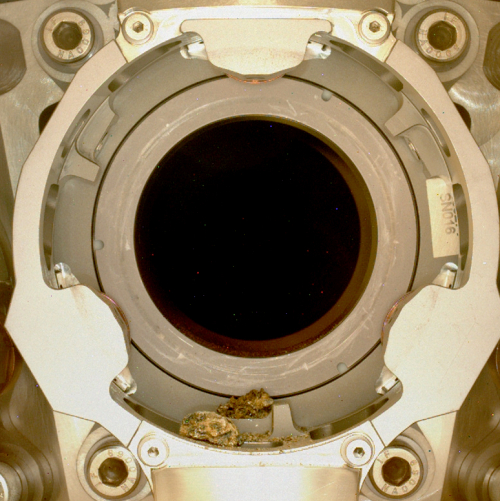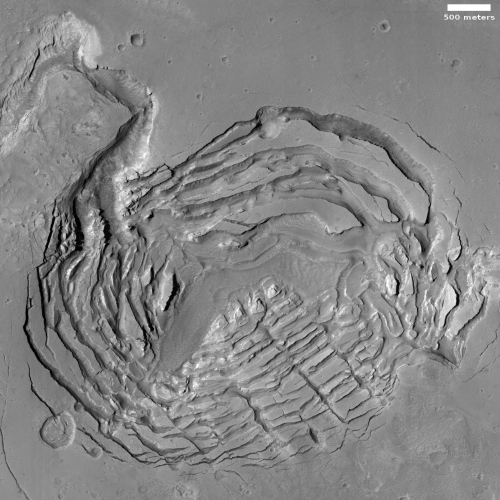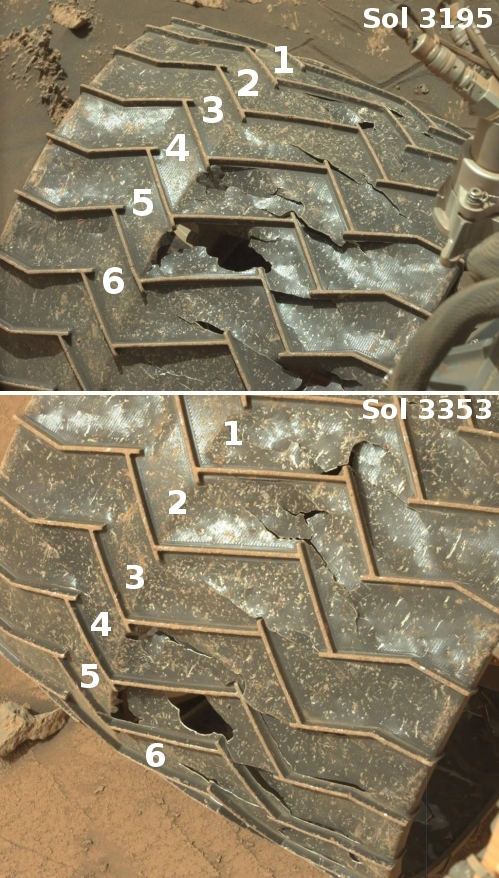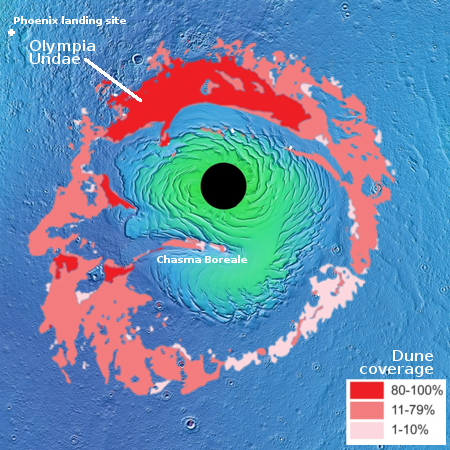Carbon isotope signature detected in Curiosity data suggests possible ancient life, or not
The uncertainty of science: In reviewing data from Curiosity, scientists have detected a faint enrichment on ridge tops in Gale Crater of the carbon isotope carbon-12, normally associated with life on Earth because it is easier for life to process than the heavier carbon-13 isotope.
In order to explain this enrichment, the scientists have concocted several complicated explanations, all of which seem unlikely because of their complexity. The explanations that include life require a series several precise steps to get the enrichment limited to only high ridges. Another that doesn’t involve life requires the solar system to pass through an interstellar cloud.
One proposed explanation is simpler however, and does not require ancient microbes or interstellar clouds.
More prosaically, a few studies suggest UV rays can generate the signal without help from biology at all. UV can react with carbon dioxide—which makes up 96% of the martian atmosphere—to produce carbon monoxide that is enriched in carbon-12. Yuichiro Ueno, a planetary scientist at the Tokyo Institute of Technology, says he has recently confirmed the process can occur in unpublished lab results. “The reported carbon isotope ratios are exactly what I have expected,” he says.
Though this explanation must explain why they have seen the enrichment only at high points, it is straight forward and fits all the present data we presently have of Mars
All in all, the data is tantalizing but hardly a indicator that Mars once had life. There is too much uncertainty. We do not yet know enough about Mars’ geological and climate history to come to any consensus on an explanation.
The uncertainty of science: In reviewing data from Curiosity, scientists have detected a faint enrichment on ridge tops in Gale Crater of the carbon isotope carbon-12, normally associated with life on Earth because it is easier for life to process than the heavier carbon-13 isotope.
In order to explain this enrichment, the scientists have concocted several complicated explanations, all of which seem unlikely because of their complexity. The explanations that include life require a series several precise steps to get the enrichment limited to only high ridges. Another that doesn’t involve life requires the solar system to pass through an interstellar cloud.
One proposed explanation is simpler however, and does not require ancient microbes or interstellar clouds.
More prosaically, a few studies suggest UV rays can generate the signal without help from biology at all. UV can react with carbon dioxide—which makes up 96% of the martian atmosphere—to produce carbon monoxide that is enriched in carbon-12. Yuichiro Ueno, a planetary scientist at the Tokyo Institute of Technology, says he has recently confirmed the process can occur in unpublished lab results. “The reported carbon isotope ratios are exactly what I have expected,” he says.
Though this explanation must explain why they have seen the enrichment only at high points, it is straight forward and fits all the present data we presently have of Mars
All in all, the data is tantalizing but hardly a indicator that Mars once had life. There is too much uncertainty. We do not yet know enough about Mars’ geological and climate history to come to any consensus on an explanation.









